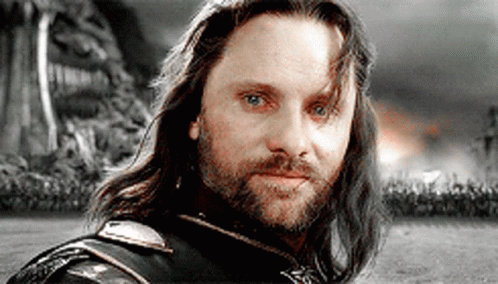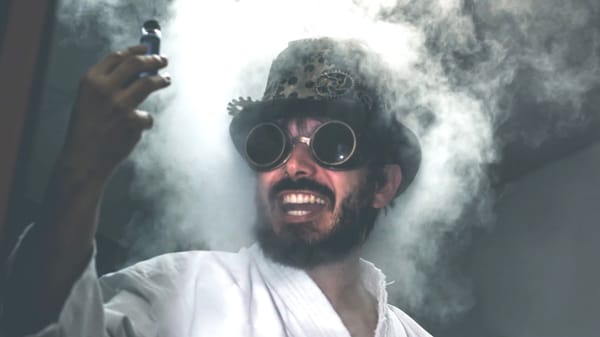What Kind of Fighter Are You
There are two kinds of fighters in this world. Which category do you belong to? This issue is about the coaching industry, reproductive control, and the church.

The whole of life is one fight. From the sperm’s fight as it makes its way through the uterus to fertilize the female egg, to the struggle for power, intimacy, and status, and finally to the fight with death when it knocks on our door. We can’t avoid to fight. Assuming that one has not lost their survival instinct, it is not even within our control whether to fight or not—we must continue to face the challenges and difficulties life throws at us. What we can control, however, is our attitude toward fighting.
Most people seem to be fighting against something. It’s all over the news, social media, and casual chatter. They’re fighting against violence, racism, abuse, addiction, bad habits, exploitation, other’s opinions, and other social groups, ethnicities, religions, and cultures. The list is endless.
All these fights imply anger, fear, resistance, and violence. Although for anything new to emerge and manifest the old must be abandoned or destroyed, fighting against something seems to be the inevitable path of aversion and animosity.
Instead of fighting against something, we should strive to fight for something. Fighting for something implies creation and progress. The old must still be overcome in favor of the new but the change is driven from a place of love.

Don’t fight against oppression, abuse, or hate. Instead, fight for rights, for freedom, and for compassion. Why fighting against an aggressor if we can fight for peace? Why fighting against bad habits if we can fight for good ones? Why fighting against someone’s opinion if we can fight for our own?
Every fight we carry out on the outside begins on the inside—they’re nothing more than reflections of the struggles we’re having with our own deepest fears, desires, and aspirations. Stop creating more tensions, frictions, and defilements within. Change your attitude and start fighting for something.
Have a phenomenal week!
⏤Ferdinand
✨ Sparks
📝 Article: I’m a life coach, you’re a life coach: the rise of an unregulated industry
If we leave the path of conventional means for the treatment of mental or physical suffering—such as doctors, family, traditional medicine, or religion—we quickly dive into a world of alternative medicine, (miracle) healers, mind and body workers, and other more or less spiritual practitioners. Some of them are experts in their field who actually know what they are doing as a result of serious education and many years of experience. The vast majority of such practitioners though neither works on a foundation of solid scientific research or time-tested religious or cultural methods, nor are they well studied and educated with long-term practical experience. While this is a risk in virtually every discipline it is important to keep in mind that any industry that is completely unregulated by any supervising agent has no set standards for education, verifiable practices, and safety—which has its advantages and disadvantages. One of these industries is “coaching”.
One of her first consultations was with a woman who said that she was so anxious that she’d lost her home, her job and her kids. She was living in her cousin’s trailer, sleeping on the couch, and couldn’t get her life together. Blatt couldn’t quite bring herself to try to recruit her as a client; instead, she recommended that she talk to a mental health professional. “It wasn’t just her thoughts that she needed help with, it was many other factors,” Blatt said. But when she told her coaching community about the consult, they critiqued her decision. “The response was, you’re just talking yourself out of making money. Your thoughts are giving you the result of not signing the client.”

📝 Article: What Dune Reveals about Reproductive Control and Eugenics
Andrew Mongue, postdoctoral researcher at the University of Edinburgh’s Institute of Evolutionary Biology, dives into the scientific background of the ability of females in various species to control the reproductive outcome of their mating activity and to which extend this may unconsciously or consciously occur in humans.
What Herbert described in 1965 would come to be known, in 1983, as “cryptic female choice” and was elaborated upon in a monograph on “female control” of reproduction in 1996, which met with resistance to its recognition and acceptance in the scientific community. Specifically, the theory of cryptic female choice posits that female individuals can influence reproductive outcomes after mating has occurred.
[...]
Abundant examples across the animal and plant kingdoms demonstrate that manipulation of fertilization is a reproductive reality and advantage for many species. Indeed, even animals as familiar as honeybees have the ability to control the sex of their offspring. The queen can directly control the numbers of daughters and sons in the colony by laying either fertilized or unfertilized eggs, respectively. In an even more striking example, in some comb jellyfish, the female egg nucleus appears to visit and evaluate several sperm that have reached the egg before choosing to fuse with one to create an embryo. Although evidence, so far, is sparse in humans, a recent study has found evidence that mature human oocytes can give off chemical signals that are more attractive to the sperm of certain individuals.

🍿 Movie: The Two Popes
Evocative movie about strength, care, forgiveness, compassion, beliefs, responsibility, and the qualities of kings. It depicts the story of two men at personal and ideological crossroads that lead to important dogmatic changes in modern organized religion.
Behind the Vatican walls, Pope Benedict and the future Pope Francis must find common ground to forge a new path for the Catholic Church.

💡 This Week’s Wisdom
As for myself I always willingly acknowledge my own self as the principal cause of every good or of every evil which may befall me; therefore I have always found myself capable of being my own pupil, and ready to love my teacher.
From The Story of My Life by GIACOMO CASANOVA.
Captured and resurfaced using the phenomenal Kindle reader.
Did you enjoy this issue? If you draw value from Sunday Sparks please consider contributing to this publication’s financial freedom.
Flows straight into content, not coffee.







